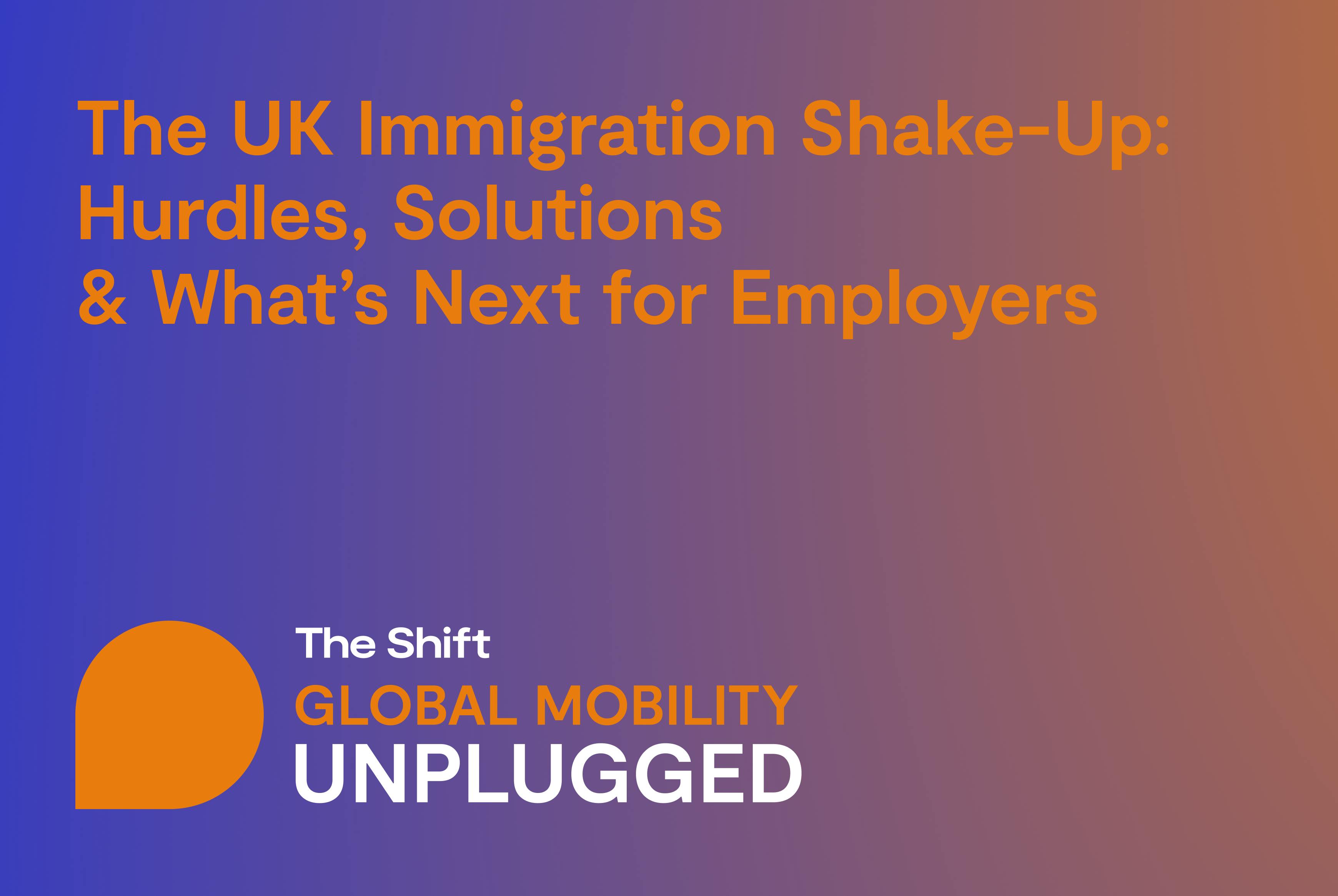Traveling to the U.K. has changed significantly over the past 12 months, especially with the rollout of the Electronic Travel Authorization (ETA). ETA is a 2024 U.K. visa policy update that now requires visa-exempt nationals visiting the U.K. to first apply for permission. With the introduction of ETA comes new challenges for HR and global mobility teams that rely on both international talent to travel and talent acquisition across borders. Companies now have the difficult job of finding a balance between an international talent strategy, immigration compliance, and the biggest of all factors, cost. All of this while trying to stay competitive in the market, which creates added complexity for HR teams.
“Immigration is no longer just filling paperwork or casework—it’s more and more strategic.” Nina Vafaee, Global Mobility Immigration Manager at RWE.
UK Immigration Changes at a Glance
So, what’s changed with the introduction of ETA and other changes? A lot. But the most important thing to note is that not everyone’s affected by the new ETA policy.
Anyone who already has permission to enter the U.K. doesn’t have to get an ETA. ETA only applies to citizens of other countries who don’t require a visa to enter the U.K., such as the U.S. So, if your organization’s employees already have permission to work, live, or study in the U.K., an ETA isn’t a requirement.
The Standard Occupational Classification (SOC) codes have also changed. In 2024, the Home Office removed several roles from the list of eligible workers whom companies could sponsor for work purposes in the U.K. Notably, new entrant roles or lower-salary positions were most affected, and some no longer qualify for sponsorship.
What Your Global Mobility Strategy Needs Amidst the Changes for Agility
With the new changes come unexpected skilled worker visa challenges for sponsoring companies. Think about how having to let go of some of your employees, increased sponsorship costs, and an overall destabilizing of your HR global hiring strategy. The impact can be significant. Luckily, there are several sponsorship best practices you can leverage for international workforce planning.
How to Stay Ahead of Compliance Risks
Compliance with immigration policies and changes is essential for overall organizational stability and growth. This is because non-compliance can have very expensive consequences. “Because at the end of the day, there is a risk of breaching compliance. And if you are non-compliant, then enforcers come down on you.” Humza Hussain, Case Manager UK & Ireland, Localyze.
So, how can your organization attain compliance and, while at it, do it confidently? The short answer is preparation. “We are planning mock audits because we understand it's more important now than ever, seeing that other companies have gone through auditing of late. So we’re like, we want to be prepared. We want to be compliant.” Nina Vafaee, Global Mobility Immigration Manager at RWE.
With mock audits, you get the chance to see where you fall short before the actual audit takes place. You can easily identify any gaps you may have in your employee documentation, inconsistencies in processes, and any updates you may have not implemented yet.
Make Sponsorship Work Under New SOC Rules
This all comes down to your HR global hiring strategy. To be able to sponsor talent to come into the U.K., there are several requirements you have to meet, especially now with the new SOC updates.
For instance, to ensure your employees are still eligible to stay in the U.K. under the changes, you can incorporate upskilling into your HR strategy. Upskilling essentially means that you’re always improving your employees’ skills through training or paying for their certifications so that they continue to meet the updated job role requirements.
While this strategy might boost your retention rates, it does much more. It can help improve immigration compliance, especially under changing U.K. immigration criteria, which have sidelined some entry-level roles for work visa sponsorship. This way, you can more easily do things like promoting junior staff into sponsor-eligible roles to managerial positions if that’s the requirement for visa sponsorship.
What to Do When ETA Doesn’t Apply
Even in the rare case of an ETA refusal, there are alternative visa pathways that still allow travel to the U.K. For instance, you can find alternative visas they can apply for such as the Global Talent visa, the Youth Mobility Scheme, or the Graduate Route. These alternatives, unlike ETA, give your talent more room to present their details essential for context especially when it’s an immigration caseworker handling the application. This can make all the difference especially if the candidates don’t fit neatly into ETA’s automated requirements.
“That application goes straight to a caseworker, and that caseworker could consider everything about that person before making a decision. Whereas the ETA, because it’s light touch, doesn't allow for that broader explanation. And it almost goes — no, this person can't come in.” Aaron Walton, Engagement Lead, Future Border and Immigration System (FBIS)
Prepare Better for Future Immigration Shifts
Like most policies, immigration policies will continue to evolve. Some for the better, others for the worse. Instead of letting these shifts catch you by surprise, it’s best to prepare. That means that your HR strategy and organization in general must be agile. In this case, agility might mean several things, including involving immigration in international workforce planning and staying up to date on policy developments.
“This means involving immigration at the earliest stage of workforce planning — before you post referrals, make offers, and launch projects. This will better position you to navigate the fast-changing landscape and create agility.” Nina Vafaee, Global Mobility Immigration Manager at RWE.
Navigate U.K. Immigration Changes with Agility
At Localyze, we understand that immigration changes might come into effect without warning. More importantly, these changes may create complexities for your organization. That shouldn’t stop you from hiring qualified international talent. That’s why we help companies with their global mobility needs.
Want to stay ahead of the U.K. immigration shake-up? Watch the full webinar that covers that and more.
You can also book a demo today to see how Localyze can support your team to stay compliant and competitive in the face of change.


